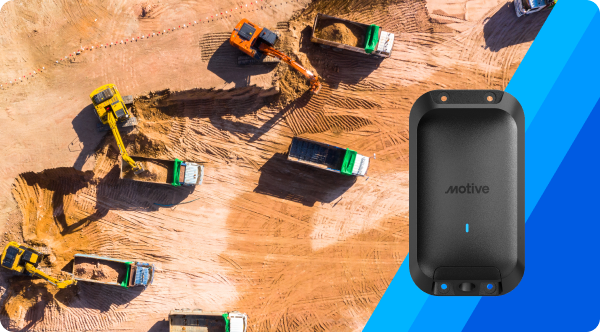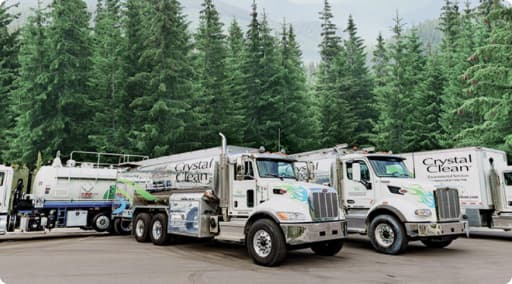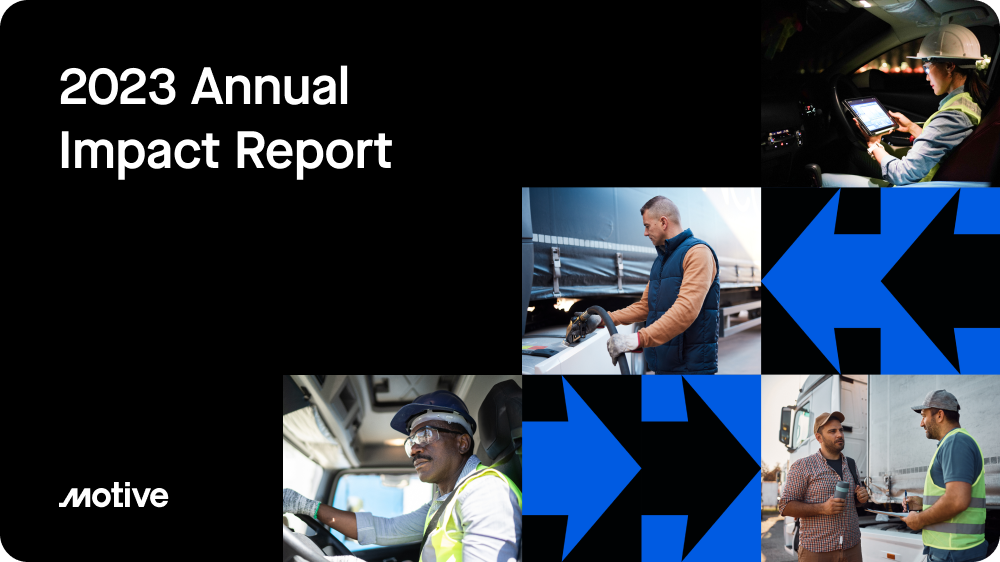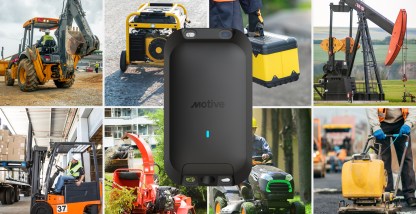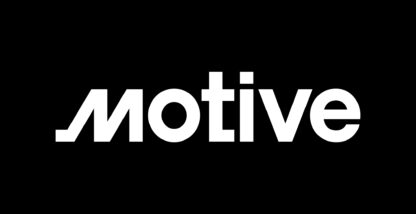For a trucking company, a trailer and its content are often one of its most valuable assets. A fleet can’t completely optimize its operations and maximize productivity unless it knows where all of its trailers are at any given time.
This is where trailer tracking comes in.
What is trailer tracking?
Trailer tracking involves tracking solutions that help you gain visibility into your operations by providing near real-time data on trailers and equipment status.
This information allows fleet managers and dispatchers to be aware of where their assets are 24/7, which leads to increased efficiency and more opportunities for making decisions based on data.
Depending on your needs, preferences, and the installed trailer tracking solution, location data of your assets can be transmitted in near real-time or after pre-selected times.
How does trailer tracking work?
A trailer tracking solution is comprised of two parts: hardware and software.
The asset gateway hardware is attached to the trailer. It is usually powered by solar and built-in batteries to ensure continuous operation.
Once attached, the asset gateway can collect and relay information, such as the location of the asset, unauthorized door opening, and trailer drops.
This information is then relayed to fleet managers and dispatchers who may want to know the exact location of an asset and whether or not a trailer is stationary or moving.
The best trailer GPS tracking systems are ruggedized and sealed. They have a weatherproof and water-resistant design that enables them to work perfectly even in the harshest conditions that truck drivers often find themselves in on the road.
Benefits of trailer tracking
Here are a few major benefits that a fleet may get with trailer tracking:
1. Increased trailer and cargo security
One of the biggest reasons why fleets need a trailer tracking solution is to increase trailer and cargo security.
2. Detecting unauthorized usage and trailer drops
Trailer tracking solution also ensures that fleet managers and safety officers get instant alerts in case of unauthorized use or trailer drops.
With near real-time information, costly mistakes can be avoided.
3. Eliminating yard hunts
Software-powered trailer tracking can also help eliminate manual yard hunts. Without a modern trailer tracking solution, drivers would have to go out and manually find trailers, which wastes valuable time.
A trailer tracking solution increases efficiency and reduces time spent on asset utilization, which enables drivers to spend more time on the road. This directly increases revenue and improves the company’s bottom line.
4. Reduced administrative burden
Because of automation, such as geofenced alerts and real-time asset location, fleet managers can spend significantly less time manually checking on drivers. This reduces the administrative burden and allows managers and dispatchers to take on more work.
5. Reducing driver detention time
With automated geofenced alerts and location-specific notifications, fleets can identify exactly how much time an asset spends at a shipper’s or receiver’s facility.
This allows fleets to be aware of busy or inefficient facilities, which could cost time and money if drivers are being detained for long periods of time. Detention time can cost a trucking company up to $1,280 per driver per year. By reducing unnecessary dwell time, data-driven fleet managers can make a significant positive impact on the bottom line of the company.
6. Improved customer relations
When you know exactly where all your assets are, you can be more proactive and provide accurate delivery times to customers. This strengthens customer relations, increases your authority, and gives you a competitive edge.
A trailer tracking solution also enables you to set geofenced alerts and receive timely notifications whenever a driver is approaching a facility. You can then inform your customers when they can expect to receive the product or service.
7. Data-driven strategies and business decisions
Smart businesses make decisions based on data.
Trailer tracking solutions can provide you with such data and information and help you set benchmarks and drive your business strategy.
Here’s are examples of how data can empower you:
- You can decide which shippers and receivers to work with
- Identify satisfied customers for upsell opportunities
- Flag underutilized assets and reroute them for better management
Simplify operations with a trailer tracking solution
A feature-rich trailer tracking solution can help a fleet simplify operations and reduce overhead.
For instance, Sutton Trucking, who uses a Motive Asset Gateway for trailer tracking, has improved efficiency due to real-time location and reduced manual work.
Sam Thudium of Sutton Trucking said, “We normally have to spend time calling owner-operators that haul with us to find out where they last dropped our trailers. With the Asset Gateway, we get that time back because we can see the trailers’ real-time location in the Motive Dashboard.”
Learn more about trailer trucking and how it can benefit your business.
